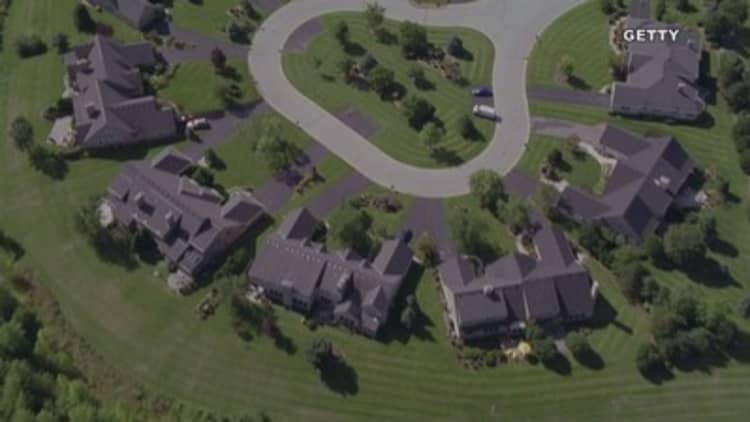
Interest rates on home loans moved higher again last week, causing both homebuyers and homeowners to back away from the mortgage market.
Total mortgage application volume fell 2.6 percent for the week. The weekly seasonally adjusted application index from the Mortgage Bankers Association is now 20 percent lower than the same week a year ago.
Refinance applications, which are highly rate-sensitive, have been falling for the past few weeks and dipped 5 percent last week. Refinance volume is 38 percent lower than a year ago, when interest rates were lower. Refinance activity has fallen 20 percent since September, when rates hit a 2017 low.
The average contract interest rate for 30-year fixed-rate mortgages with conforming loan balances ($424,100 or less) increased last week to its highest level since July, 4.22 percent, from 4.18 percent, with points increasing to 0.43 from 0.42 (including the origination fee) for 80 percent loan-to-value ratio (LTV) loans.
"Rates increased last week as speculation over the next Fed chair continued, and the European Central Bank announced plans to taper its asset purchase program, signaling increased confidence in the euro zone economies," said Joel Kan, an MBA economist.
Mortgage applications to purchase a home, which are less rate-sensitive, still fell 1 percent for the week, but they are 10 percent higher than a year ago. Homebuying has been hit harder by low supply and high prices than by rising interest rates.
Home prices are now at record highs across much of the nation. They rose 6.1 percent in August from August 2016, according to the latest S&P CoreLogic Case-Shiller national home price index. That is the biggest annual gain in three years and an increase from the 5.9 percent annual jump in July. It might seem there is no limit to price gains, but prices always lag sales, and home sales are now falling.
"The strength of house price gains may seem inconsistent with some evidence of weakening housing demand," wrote Matthew Pointon, property economist with Capital Economics, following the release of the price report. "Mortgage applications for home purchase have been trending down since the start of June, and in September existing home sales recorded their first annual decline for 15 months."
Mortgage rates did move slightly lower to start this week. While they are usually quite sensitive to announcements from the Federal Reserve, that is unlikely to be the case today.
"Investors are almost certain the Fed won't move rates at this meeting and instead opt to do so at the December meeting," wrote Matthew Graham, chief operating officer of Mortgage News Daily. "Of greater importance (and of more interest to investors) is Trump's pick to replace Janet Yellen as the Chair of the Federal Reserve."
That announcement is expected on Thursday.


